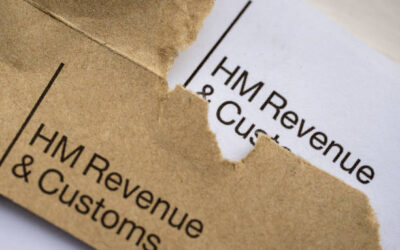Following an era of austerity and a series of tax scandals, there has been a sea change in the public attitude towards tax evasion and those who create elaborate tax avoidance schemes that go against the spirit of the law.
One aspect of this change is the increased frequency of demands that ‘something must be done’. These include suggestions tax advisers should be subjected to additional rules and better enforcement by HMRC, while ideas such as mandatory membership of a professional body or regulation by an external body have been proposed in recent articles in AccountancyWeb by Ray McCann – former President of the Chartered Institute of Taxation – and Mark Lee – founder of the Tax Advice Network – respectively. TaxWatch’s Dr. Pete Sproat contributed to the journal’s debate by considering the broad requirements of an effective system of mandatory self-regulation by professional bodies in an article entitled: How can we regulate the tax profession better? The main ideas of his article on AccountancyWeb are reproduced here:
Held to account
The public’s desire to hold to account those who commit or facilitate tax evasion increases after each tax scandal. Accountability is also a major reason people choose members of professional bodies to provide tax advice. Customers believe professionals are unlikely to provide dubious advice because professional bodies insist on standards, and deal with those who breach them. Unfortunately, in practice promoters of tax avoidance schemes are “almost never members of the professional accountancy bodies” according to HMRC, while we at TaxWatch have found professional bodies to appear slow or reluctant to undertake disciplinary procedures against those who are suspected of breaching their rules.
If the solution is to be ‘self-regulation’ by mandated membership of a professional body, as implied recently in AccountancyWeb by Ray McCann, it would be better for the bodies to collectively propose a comprehensive plan for a system of mandatory self-regulation, than wait for a government minister to propose an externally regulated regime and then criticise it. It is suggested that to be effective, a system based upon professional bodies would consider the following aspects.
Membership coverage
Given HMRC suggests more than one in three tax advisors do not belong to a professional body, and almost all promoters of tax avoidance schemes belong to this group, any system of self-regulation that did not require compulsory membership of one of a number of specified professional bodies would be fatally flawed. Making membership compulsory would require government legislation.
Control authorisation
Those authorised to provide tax advice would need to be capable of following both tax laws and professional rules of conduct. Presently, professional bodies tend to assure this by use of entry qualifications and /or a period of experience working in the area. They also insist members hold professional indemnity insurance. Therefore, obtaining agreement on a credible set of minimum standards in these two areas should not be a problem in practice.
Professional bodies might also wish to propose directors of companies providing tax advice are authorised so that it is easier to make firms accountable for the actions of their employees. They might also like to consider whether tax advisors should complete continuing professional development.
Conduct rules and sanctions
Professional bodies would have to agree a minimum set of conduct rules and sanctions, if not ethics, to avoid regulatory arbitrage. This too seems a realistic possibility given the existence of the Professional Conduct in Relation to Taxation.
Monitoring the rules
A major advantage to professional bodies of mandatory self-regulation would be their ability to decide on their approach to monitoring the rules. It has been suggested that the regulatory and oversight arrangements provided by the ICAEW “already meets, and in some areas exceeds, the statutory regulatory requirement found elsewhere in the world”. Evidencing such claims in relation to countries with an external regulator such as Australia, could help persuade outsiders that this form of regulation would be the best option.
Thoroughness of investigations
Similarly, a joint approach to issues such as a statute of limitations, as well as the thoroughness and speed of investigations would be necessary. A proposal that included enhanced monitoring after an initial assessment of any complaint could help persuade sceptics that charlatans would have difficulty continuing to make money while a PB undertook a thorough investigation.
Adjudication panel
The sharing of an independent adjudication panel for judging breaches of the shared conduct rules would help avoid the criticism that the application of sanctions differed in practice. The fact the Chartered Institute of Taxation and the Association of Tax Technicians share the Tax Disciplinary Board shows this is not beyond the realm of possibilities.
Cost to advisers
When resisting calls for external regulation, advocates of self-regulation often cite cost – albeit without any real evidence. Indeed, it is impossible to evidence the claim self-regulation would be cheaper without a detail proposal as to what it, and an externally regulated regime, would look like. Presently, advocates of the latter are likely to suggest the annual cost to each tax advisors of their system would be in the region of $731 (£407.61) before tax, for this is the cost to each tax advisor of regulation by the Tax Practitioners Board in Australia. Professional bodies are advised to keep this in mind when designing a system that looks like it would work as well, or better, in practice.
Conclusion
The system as it currently stands is not working. Hopefully, this and the piece in AccountancyWeb, encourages the relevant professional bodies to take a more pro-active approach to problems in the tax advice market, and a more co-operative approach to reducing them. Alternatively, they could do nothing and hope the problems go away. Without evolution, the professional bodies may see an external regulator imposed on the profession.



